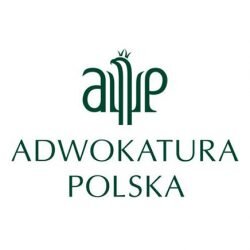Best Collaborative Law Lawyers in Ciechanów
Share your needs with us, get contacted by law firms.
Free. Takes 2 min.
Free Guide to Hiring a Family Lawyer
List of the best lawyers in Ciechanów, Poland
About Collaborative Law in Ciechanów, Poland
Collaborative Law is a modern, client-focused approach to resolving legal disputes, most commonly used in family law matters such as divorce, separation, and child custody. In Ciechanów, Poland, this method enables disputing parties and their lawyers to work together outside of court to reach a mutually acceptable settlement. Unlike traditional adversarial court processes, collaborative law emphasizes cooperation, transparency, and voluntary information-sharing. This approach can often lead to more amicable outcomes and reduced emotional strain for all involved.
Why You May Need a Lawyer
There are several situations where individuals and families in Ciechanów may benefit from the assistance of a lawyer trained in collaborative law. Common scenarios include:
- Divorce or marital separation where both parties wish to avoid court confrontation
- Child custody and visitation arrangements
- Property and asset division after relationship breakdown
- Negotiating child or spousal support agreements
- Family business disputes or inheritance matters
- Resolving disagreements in a respectful and confidential setting
Collaborative lawyers act as both legal advisors and facilitators, ensuring that the negotiation process remains constructive and focused on finding the best outcome for all parties involved.
Local Laws Overview
In Poland, collaborative law operates within the broader framework of civil law. While there is no separate legal act purely devoted to collaborative law, local regulations in Ciechanów adhere to the Polish Family and Guardianship Code, which underscores the importance of amicable family dispute resolution. Courts often encourage disputing parties to resolve issues outside of litigation whenever possible.
The cornerstones of collaborative law in Ciechanów include:
- Participation agreements signed by all parties to commit to the collaborative process
- Full disclosure of relevant financial and personal details
- Voluntary participation with the option to withdraw and proceed to court if needed
- Involvement of trained legal and, if necessary, psychological or financial professionals
Collaborative law is recognized and supported by many family law professionals in Ciechanów, and is particularly suitable for clients seeking privacy, flexibility, and customized resolutions.
Frequently Asked Questions
What is the difference between collaborative law and mediation?
Collaborative law involves each party having their own lawyer trained in the collaborative method, and negotiations happen with all parties present. Mediation typically involves a neutral mediator who does not provide legal advice. Both aim for amicable resolution, but collaborative law offers individual legal support throughout the process.
Is collaborative law legally binding in Ciechanów?
Agreements reached through collaborative law can be formalized and submitted to the court for approval, making them legally binding and enforceable under Polish law.
Can collaborative law be used for issues other than divorce?
Yes, collaborative law can address a range of disputes, including child custody, property division, support arrangements, and even some business or inheritance matters within families.
What happens if the collaborative process fails?
If either party decides to end the collaborative process, both lawyers must withdraw, and parties may proceed to court with new legal representation. This encourages full commitment to the collaborative process.
Is the collaborative process confidential?
Yes, discussions and documents exchanged during collaborative law sessions are confidential and cannot be used as evidence if the matter goes to court later on.
How long does the process typically take?
The duration varies depending on the complexity of the issues and the willingness of parties to cooperate, but collaborative law generally results in faster resolutions compared to court proceedings.
What are the costs involved?
While each party pays their own lawyer, collaborative law is often less expensive than court litigation due to shorter timelines and less adversarial procedures.
Can I change to a different lawyer during the process?
If a party wishes to change lawyers, the new lawyer must be trained in collaborative law for the process to continue. Otherwise, the process may need to restart or transition to traditional litigation.
Are children involved in the collaborative process?
While children do not participate directly in legal sessions, their interests remain central. Sometimes, child specialists may be invited to provide input for suitable arrangements.
How do I begin the collaborative law process in Ciechanów?
The first step is to consult with a lawyer trained in collaborative law. Both parties must agree to the collaborative approach and sign a participation agreement before formal negotiations begin.
Additional Resources
If you are seeking further information or assistance with collaborative law in Ciechanów, the following resources may be helpful:
- Ciechanów District Court (Sąd Rejonowy w Ciechanowie) - Family Law Department
- Polish Bar Council (Naczelna Rada Adwokacka) - for finding qualified collaborative law lawyers
- Centres for Family Mediation and Legal Aid in Mazovia Region
- Polish Association of Family Mediators
- Municipal Social Welfare Centre in Ciechanów - support for families in conflict
These organizations can provide referrals, information, and sometimes initial consultations to help you understand if collaborative law is right for you.
Next Steps
If you believe collaborative law may benefit your situation, consider the following steps:
- Identify and contact a lawyer in Ciechanów trained in collaborative law. Many offer initial consultations to discuss your needs and suitability for the process.
- Have an open discussion with the other party about considering collaborative law as an alternative to court litigation.
- Gather personal, financial, and family information relevant to your dispute in preparation for collaborative sessions.
- Sign a participation agreement with your lawyer and the other party to begin the process officially.
- Commit to transparent and honest communication throughout the negotiations to reach a fair outcome.
Choosing collaborative law demonstrates a commitment to resolving disputes in a respectful, non-adversarial way that can benefit you, your family, and any involved children. For professional advice tailored to your case, contact a qualified legal practitioner in Ciechanów today.
Lawzana helps you find the best lawyers and law firms in Ciechanów through a curated and pre-screened list of qualified legal professionals. Our platform offers rankings and detailed profiles of attorneys and law firms, allowing you to compare based on practice areas, including Collaborative Law, experience, and client feedback.
Each profile includes a description of the firm's areas of practice, client reviews, team members and partners, year of establishment, spoken languages, office locations, contact information, social media presence, and any published articles or resources. Most firms on our platform speak English and are experienced in both local and international legal matters.
Get a quote from top-rated law firms in Ciechanów, Poland — quickly, securely, and without unnecessary hassle.
Disclaimer:
The information provided on this page is for general informational purposes only and does not constitute legal advice. While we strive to ensure the accuracy and relevance of the content, legal information may change over time, and interpretations of the law can vary. You should always consult with a qualified legal professional for advice specific to your situation.
We disclaim all liability for actions taken or not taken based on the content of this page. If you believe any information is incorrect or outdated, please contact us, and we will review and update it where appropriate.












